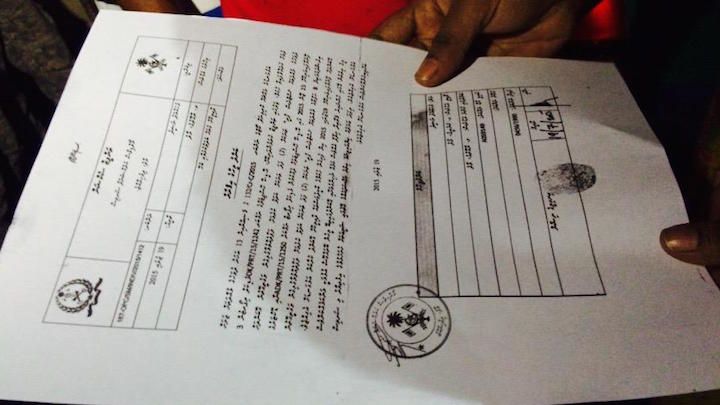Government blames Nasheed’s lawyers for ‘failure to verify house-arrest documents’
The government today denied commuting former President Mohamed Nasheed’s 13-year jail term to house arrest, suggesting official documents publicised by his lawyers may have been forged.

24 Aug 2015, 09:00
The government today vehemently denied commuting former President Mohamed Nasheed’s 13-year jail term to house arrest, suggesting official documents publicised by his lawyers may have been forged.
Acting Home Minister Mohamed Shainee told the press that the release of jailed politicians had been discussed in talks with the main opposition Maldivian Democratic Party (MDP), but the government had never agreed to the demand.
“We never agreed to commute or pardon any sentence, and we never communicated such a decision to any opposition members,” said Shainee, who had also represented the government at the July talks.
Nasheed was first transferred to house arrest on June 19 for three days. The period was later extended to eight weeks, as part of a deal made in exchange for the MDP’s backing for several crucial votes in parliament, including the impeachment of the Vice President.
Become a member
Get full access to our archive and personalise your experience.
Already a member?
Discussion
No comments yet. Be the first to share your thoughts!
No comments yet. Be the first to join the conversation!
Join the Conversation
Sign in to share your thoughts under an alias and take part in the discussion. Independent journalism thrives on open, respectful debate — your voice matters.




